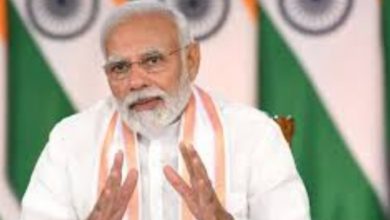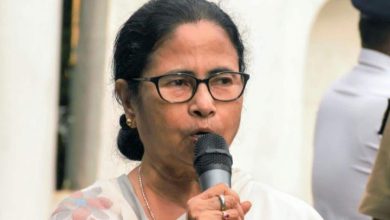US announces new round of sanctions targeting Russia’s financial institutions, Kremlin officials

Burned column of military vehicles are seen on a highway, as Russia’s attack on Ukraine continues, in Kyiv region, Ukraine, April 5, 2022. (REUTERS/Gleb Garanich)
Ukraine-Russia conflict: India has chosen side of peace, Jaishankar says in Lok Sabha
A DAY after India, in its statement at the United Nations Security Council (UNSC) meeting, “unequivocally condemned” the civilian killings in the Ukrainian city of Bucha, the government told Lok Sabha on Wednesday that it supports the call for an “independent investigation” into the deaths. Countering criticism on the Centre’s stand, External Affairs Miner S Jaishankar said India is “strongly against” the conflict, and “if it has chosen a side, it is a side of peace, and for an immediate end to violence”.
Replying to the discussion on the situation in Ukraine, Jaishankar said: “We are strongly against the conflict, we believe that no solution can be arrived at shedding blood and at the cost of innocent lives. In this day and age, dialogue and diplomacy are the right answers to any disputes”.
Stating that India was “deeply durbed” the Bucha killings, he said: “We strongly condemn the killings that have taken place there. This is an extremely serious matter and we support the call for an independent investigation.”
Russia vs the West: A clash of civilisations
One of the world’s most derided visions of international affairs is Samuel Huntington’s infamous “Clash of Civilisations”. Huntington saw the state of the post-Cold War conflict as chiefly being between civilisational complexes that had shared hory, geographic contiguity and a common culture. He argued that the primary axis of future conflict would be cultural fault lines between civilisations rather than between political ideologies.
Huntington mapped civilisations largely in line with geographically clustered ethno-religious groupings. For example, he predicted (in 1993) that the Islamic world would be the Western culture’s chief antagon, the likelihood of a Sino-Islamic alliance, and positioned India (“Hindu” culture) and Russia (“Orthodox” culture) as “swing civilisations”. It is particularly interesting to dust off Huntington’s pages and revisit his predictions regarding Russia and India. Most importantly, he also identified Ukraine as a unique “cleft” between civilisations due to the linguic and religious divide between western and eastern Ukraine.





